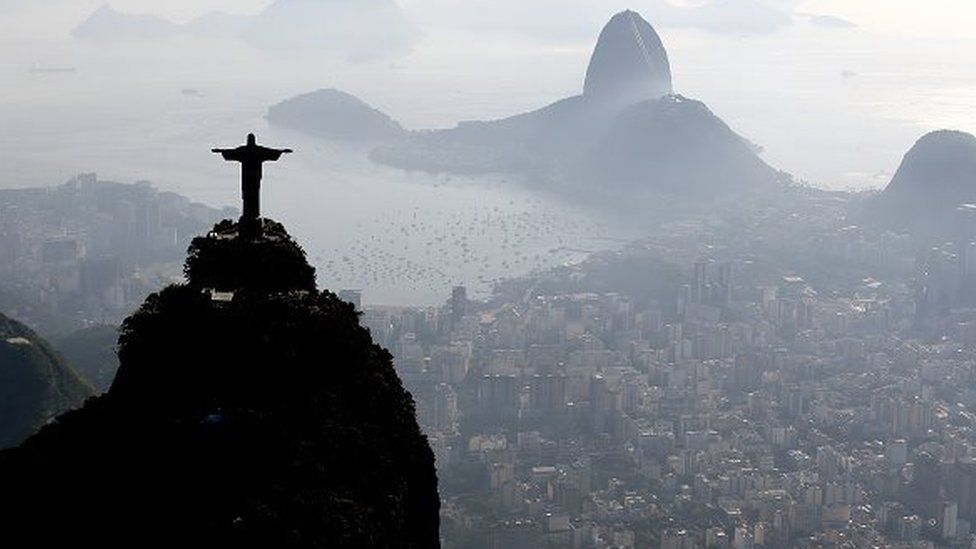Rio state declares 'public calamity' over finances
- Published

The Brazilian state of Rio de Janeiro has declared a financial emergency less than 50 days before the Olympics.
Interim Governor Francisco Dornelles says the "serious economic crisis" threatens to stop the state from honouring commitments for the Games.
Most public funding for the Olympics has come from Rio's city government, but the state is responsible for areas such as transport and policing.
Interim President Michel Temer has promised significant financial help.
The governor has blamed the crisis on a tax shortfall, especially from the oil industry, while Brazil overall has faced a deep recession.
The measure could accelerate the release of federal emergency funds.
Rio state employees and pensioners are owed wages in arrears. Hospitals and police stations have been severely affected.
In a decree, Mr Dornelles said the state faced "public calamity" that could lead to a "total collapse" in public services, such as security, health and education.
He authorised "exceptional measures" to be taken ahead of the Games that could impact "all essential public services", but no details were given.
The state has projected a budget deficit of $5.5bn (£3.9bn) for this year.
Rio's mayor Eduardo Paes said on Twitter the state's decision "in no way delays the delivery of Olympic projects and the promises assumed by the city of Rio".
There are also concerns over an outbreak of the Zika virus, which has been linked to birth defects, and the impact it could have on the city's tourism.
Rio expects about 500,000 foreign visitors during the Olympics.
- Published8 April 2018
- Published14 June 2016
- Published2 June 2023